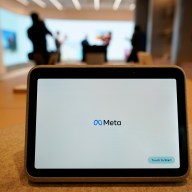9/11 responders reacted with cautious hope Wednesday to news that the city might release data illuminating whether Ground Zero dust caused their cancers.
After intense political pressure, Mayor Michael Bloomberg promised yesterday he would give doctors at Mount Sinai Hospital a list of the names of officers at Ground Zero and request the police officers’ permission to reveal cancer diagnoses.
And at a hearing yesterday, Dr. Philip Landrigan at Mount Sinai’s World Trade Center Medical Monitoring and Treatment Program said that out of 20,000 responders in their program, the cancer rate was 14 percent higher than he expected.
The Zadroga Act provides care for people with 9/11-related illnesses, but that list does not include cancer. Federal officials will decide in March whether to add cancer, but say they need a proven link first.
Meanwhile, many responders report they are getting rare cancers that their doctors tell them can be linked to inhaling toxins.
Federal officials will decide in March whether to add cancer, but say they need a proven link first.
At a meeting of the World Trade Center Health Program, which administers the Zadroga funding, several responders described rare cancers they developed after inhaling Ground Zero dust.
“My daughter will never see me walk down the aisle,” John Walcott, a retired NYPD detective with leukemia, told the panel.
Responder and advocate John Feal said he has been to 55 funerals for first responders who died of cancer since 9/11. Before that, he said, none.
This week, the Patrolmen’s Benevolent Association said 65 officers have died from cancer, at an average age of 44. An FDNY study found that firefighters were more likely to develop cancer after working on Ground Zero.
Marc Wilkenfeld, a physician at Winthrop-University Hospital on Long Island, tells responders their diagnoses.
“I have to tell people that you have cancer, but it’s not on the list of covered treatment,” Wilkenfeld said. “It’s really hard to tell them, to explain.”
Tons of asbestos
The air had 1.2 million tons of building materials in it, said a doctor at yesterday’s hearing.
This included as many as 400 tons of asbestos. “The government has an obligation to cover cancer treatments because they told first responders the air was safe,” Councilwoman Margaret Chin said. Elizabeth Ward, at the WTC Health Program, said yesterday that some members supported adding some cancers, like lung cancer, if linked to inhaling toxic dust.
Steep price for responders
Electrician Bruce Edwards said two of his eight-person team restoring electricity Sept. 14 developed cancer. One died. He is in remission. “Would I do it again? My first instinct is yes,” he said. “But the price I paid was steep.”Reggie Hilaire, 40, an NYPD officer still on the force, spent 850 hours at Ground Zero and has been diagnosed with both thyroid cancer and multiple myeloma, a cancer he said he shares with four other responders he has never met. “I’m not a scientist, I’m just a cop,” he said. “I don’t think it’s a coincidence.”
It’s not just New Yorkers
Arthur Noonan, a Chicago firefighter, came to New York to help after 9/11, and developed leukemia, which is now in remission. He has almost maxed out the funds from his health insurance, he said, andhe will not have much left if he gets cancer again. “After that, I don’t know what I’ll do,” he said. “People that came to help don’t need to have that constant worry in their mind that they won’t be able to get treatment.”
Follow Alison Bowen on Twitter @AlisonatMetro

















